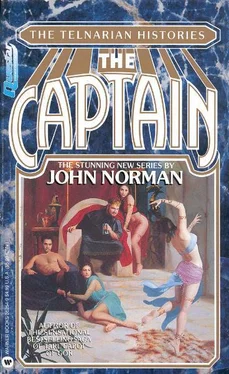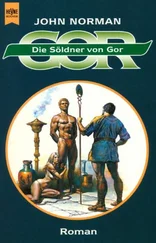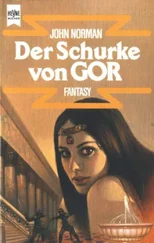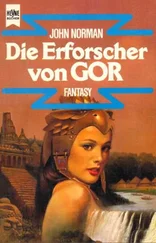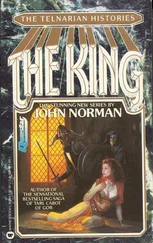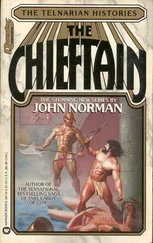The apartments in this area, closer to the plaza, and to the palace, were even richer and more lavishly appointed than their only somewhat more distant predecessors.
The giant wondered what occurred in such apartments. Muchly were they different from the huts of the forest, many of mud and sticks.
The giant was not overly enamored of material possessions, saving as females slaves counted as such.
He was interested more, though he would not have said so at this time, in the riches of power.
He who rules those with wealth is richer by far, you see, than those he rules.
Yet the giant was not insensitive to the beauty of precious stones, nor that of rare, glittering metals, no more than to that of owned women.
In his way, thus, he was not insensitive to riches.
And he knew that many men, those deprived of them, were far more sensitive to them than he.
And they meant power.
Too, for some reason, it seemed there was some sort of odd prestige connected with them, as though those who possessed them thought themselves somehow superior to those who did not.
The giant did not like that.
“Lout!” cried the fellow, almost intruding himself among the guards.
“Do not mind him,” said the companion of the giant.
The giant, seemingly not noticing, marked the fellow’s position.
It was casually done.
Riches cannot, in themselves, be a sign that one is superior, thought the giant, for it seems obvious that many who possess them are not superior.
“Bumpkin!” cried the man.
Do those of the empire regard themselves as superior to us because it is they, and not us, who possess such things?
“Lout, lout!”
Perhaps, thought the giant, wealth, the rule, riches, such things, should belong to those who are superior, but, if that is the case, then surely they should not belong to men such as these, running along, harrying us with their ridicule, shouting, carrying on like smug, arrogant, invulnerable rats, thinking themselves so safe within the walls of the empire. Perhaps, rather, riches belonged rightfully, if to anyone, to those who were truly superior, to the masters, to those who were strong enough to take them, and keep them, much as it was fit that the first meat at the great feast went to the greatest warrior, the greatest hero, at the long table?
“Lout! Lout!”
Even if riches did not betoken superiority, truly, there might be some point in removing them from those who thought they did, that such might thus be denied the pretext for their pretensions, that they might see themselves as they were, truly, rather like removing clothing from a woman, that she may then understand herself as what she is, among men.
“Lout, peasant!” cried the fellow.
The giant again brushed away flies.
“Lout!”
But it might be pleasant to own such things, and to give them away, thought the giant, with a lavish hand, as rings, fit for the wrist and arm, to cup companions.
Yes, thought the giant, there are reasons to want riches, many reasons.
“What are you thinking about?” asked his companion.
“Nothing,” said the giant.
“You are impressed with the empire,” conjectured his companion.
“Yes,” said the giant.
The giant, you see, had seen much, even in his brief time on this small, mere summer world, much which had impressed him, and variously, the ships of the empire, her weapons, quite redoubtable, muchly to be feared; her riches, almost beyond his dreams; her citizenry, on the whole to be scorned, her women, many not without interest.
A shadow at his right darted toward him. In the instant of movement it had not been the most intrusive, vulgar fellow, but he who had been behind that fellow, at his shoulder, pressing in, competing for attention. It was he, the second man, rushing in, to outdo his compeer, who was suddenly lifted, croaking, eyes bulging, from the ground, his feet kicking wildly, his throat in the grasp of the giant. Instantly the tiny mob fell back. The hands of the suspended fellow pulled weakly at the hand of the giant.
“Do not kill him,” said the giant’s companion.
“Would you have dared to touch me?” asked the giant.
The kicking fellow, as he could, the hand on his throat like a vise, shook his head, negatively.
The giant then took two steps to the side and thrust the helpless prisoner of his grip into the stone of the wall. This was done with great force. He released the unconscious body. Hair was matted to the wall. A smear of blood on the wall, slowly placed there, traced the passage of the fellow to the stones of the street.
“Is he dead?” asked the officer of the guard.
“I did not choose to kill him,” said the giant.
The head of the fellow, clearly, had the giant chosen, given his grip and his power, might have been broken against the wall, as one might have shattered an egg.
The guards looked on, in awe.
Some yards away now stood he who had been the leader of the small mob which had clung to them in the streets.
He stood there, white-faced.
“Do not kill him!” cried the companion of the giant.
The giant regarded the fellow. No, he did not think he would stand up well against the ax attack.
“No,” cried the companion of the giant. “ Civilitas ! Civilitas !”
The ragged fellow turned about and fled.
The giant looked after him. He did not think the fellow could run far, or well. He thought he could be overtaken shortly, or, if one wished, pursued slowly, until he collapsed, panting, helpless, terrified, like the bark deer.
That might be amusing.
Then one could kill him.
“No, no! Do not kill him!” cried the companion of the giant. He, you see, knew the giant better than the others present. “ Civilitas !”
But the giant did not pursue the running figure.
“What do you think would be his wergeld ?” asked the giant of his companion, looking after the scurrying figure in the distance.
“In the empire there is no wergeld ,” said his companion.
“I do not think it would be much,” said the giant.
The concept of wergeld is one which is familiar in many societies. It is, in a sense, a man-price, and it serves, in its primitive fashion, paradoxically, on the whole, to reduce bloodshed and crime. One may not kill with impunity, you see, for one must be prepared to pay the man-price of a victim to his people, his family, his relatives. Wergeld differs from man to man, depending on such things as lineage, standing in the community and wealth. A yeoman, you see, would have a lesser wergeld than, say, a noble, one of high family, and so on. But if the noble were to slay a yeoman he would be expected to pay the wergeld apportioned to such a deed. The wergeld may be paid in coin, in animals, and so on. Wergeld tends not only to protect men, for they thus cannot be slain with impunity, but, even more importantly, it tends to prevent the lacerations and slaughters, sometimes devastating and well nigh interminable, disastrous to communities and families, and clans alike, which otherwise would be likely to accompany the blood feud. The matter, in theory, is done when the wergeld is paid. To be sure, some advantage here lies with the rich, who can best afford to pay wergeld , but even they, as is well know, are not likely to part lightly with their horses or sheep.
“ Civilitas ,” said the companion of the giant, gently.
“Ah, civilitas ,” said the giant.
Was it not civilitas which made the empire truly the empire? Was this not the true gift of the empire to the galaxies, that which, when all was said and done, formed the true justification of its existence, that which was most precious in it, and of it. Did this not, this shining thing, civilitas , exceed the legions and the bureaucracy, the ships, the camps, the armament; did it not exceed and redeem the imperialism and the greed, the ferocity, the incandescent worlds, the exploitation and the cruelty; that is the meaning and glory of the empire, civilitas , had taught Brother Benjamin, who, to be sure, was no champion of the empire. Understand by this term ‘ civilitas ’ more than it can be said to mean, for there is more within it than can be said of it. It is one of those terms, like ‘friend’ or ‘love’, which can never be adequately defined. But understand in it, in part, at least, the unity of the highest of those hopes hinted at by words such as balance, order, proportion, harmony, law, indeed, civilization itself. It can be thought of, at least in part, as what can divide peace from war, justice from fraud, law from license, enlightenment from ignorance, civilization from barbarism. It is an ideal. It would perish.
Читать дальше
